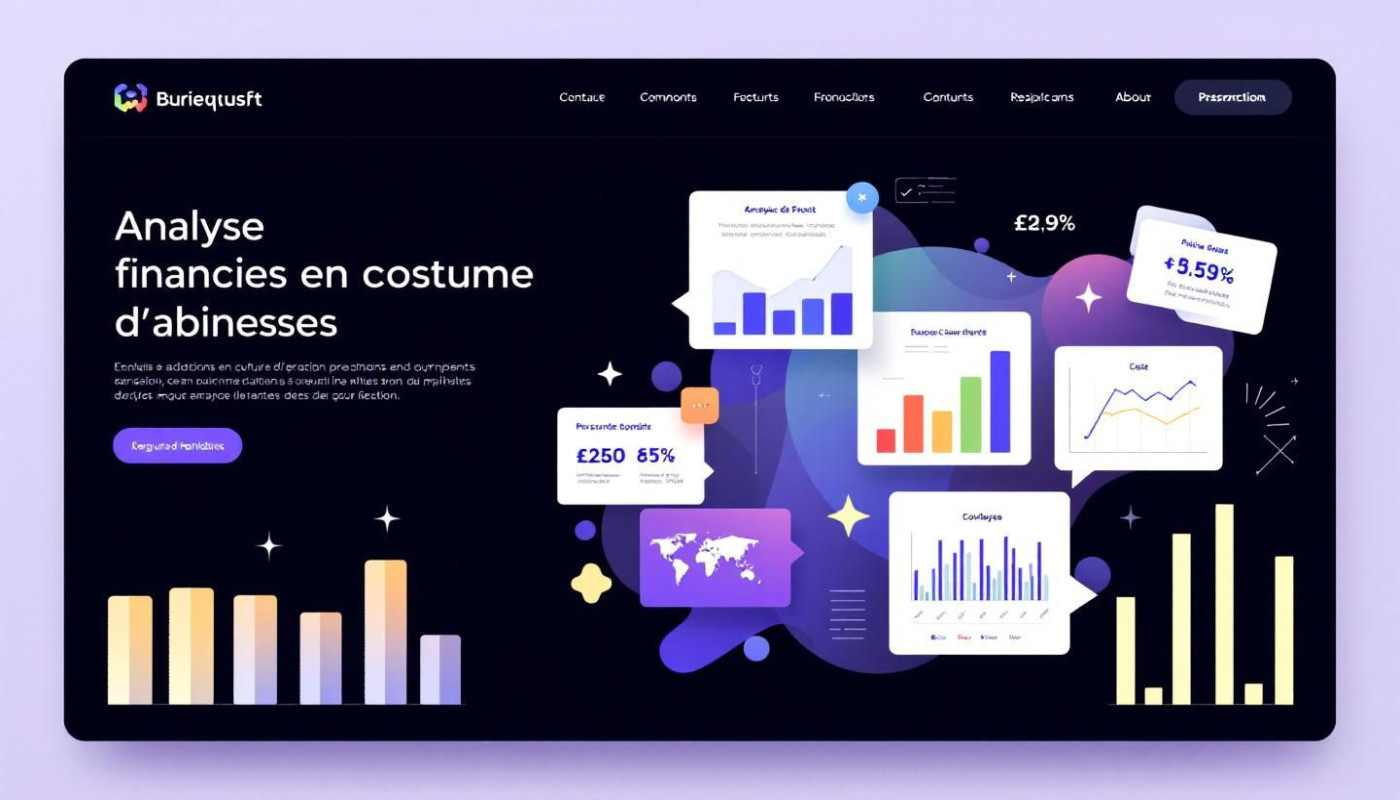Table of contents
The realm of mobile gambling is an ever-evolving landscape, where the fusion of technology and human desire for entertainment and convenience converge. With each passing year, new trends emerge that reshape the way users engage with gambling platforms on their smartphones and tablets. These trends not only signal changes in technology but also reflect broader shifts in market dynamics, user preferences, and regulatory environments. As the industry continues to grow and attract a wider audience, understanding these trends becomes vital for both consumers and businesses. Delve into the nuances of mobile gambling's latest movements and the innovations that are transforming the experience. The subsequent paragraphs will guide you through the rich tapestry of advancements, shedding light on the future trajectory of mobile gambling and how it stands to alter the digital landscape even further. Let the anticipation build as you prepare to explore the cutting-edge developments that are defining the future of gambling on the go.
Integration of Augmented and Virtual Reality
The landscape of mobile gambling is undergoing a transformative shift with the integration of Augmented Reality (AR) and Virtual Reality (VR). These technologies are heralding a new era of immersive gaming experience, enhancing the interactivity and realism of online betting platforms. AR gambling apps overlay digital information onto the real world, allowing players to engage with a virtual betting environment that responds to their physical location. Meanwhile, VR casino games plunge users into a meticulously crafted 3D world where they can interact with the game and other players as if they were in a land-based casino. The potential for AR and VR to increase user engagement is significant, given the human tendency to seek out more engaging and lifelike experiences.
Notwithstanding this potential, the push towards augmented gameplay encounters several hurdles. The delivery of tactile sensations, or haptic feedback, is a technical term that indicates the use of touch to convey real-time responses to users, which remains an area ripe for development. This level of interactivity is demanding on both hardware capabilities and software innovation, posing challenges to widespread adoption. Furthermore, as the technology continues to evolve, so does the need for robust internet connectivity and powerful mobile devices to handle the rich graphics and complex data processing required by AR and VR applications. Thus, while the promise of AR and VR in mobile gambling is immense, it must be supported by advances in technology and a readiness among users to embrace this next-level gaming paradigm.
Adoption of Cryptocurrency Payments
With the integration of cryptocurrency into mobile gambling, the landscape of placing bets and receiving payouts is rapidly evolving. This shift toward digital currency usage, often referred to as cryptocurrency gambling, has been fueled by the adoption of blockchain transactions. These transactions are supported by underlying decentralized ledger technology, which ensures transparency and immutability. Players are increasingly using Bitcoin and other cryptocurrencies for betting (Bitcoin betting) due to the privacy and security benefits they provide. Digital wallets have become commonplace in secure payments, enabling users to maintain a degree of anonymity while participating in mobile gambling activities.
Despite these benefits, the marriage of cryptocurrencies and mobile gambling faces significant challenges. The volatility of digital currencies can introduce an element of risk for both operators and gamblers, potentially affecting the stability of a user's winnings and the operator's revenue. Furthermore, as digital wallets and blockchain technologies gain traction, they come under the intensifying gaze of regulatory bodies. The scrutiny aims to mitigate money laundering and ensure the protection of users, which can lead to a complex and rapidly changing regulatory environment within which mobile gambling applications must operate.
Enhancements in Mobile Gambling Security
The landscape of mobile gambling security is evolving rapidly, with operators implementing cutting-edge measures to fortify user protections. One pivotal advancement is the integration of two-factor authentication, which adds an extra layer of verification and considerably mitigates the risk of unauthorized access to player accounts. Encryption technology has also seen significant upgrades, with many mobile gambling platforms now employing robust SSL encryption to safeguard data transmission. This barrier is vital in preserving the integrity of personal and financial information.
The drive towards a secure gambling platform extends beyond these measures. Operators are consistently on the lookout for potential cyber threats and are investing in proactive defense mechanisms to pre-empt security breaches. This commitment to cyber threat protection not only reassures players but also ensures the longevity and reputation of the mobile gambling industry. With security being a top priority, the future of mobile gambling appears to be on a trajectory towards an increasingly secure and reliable digital space for users to engage in.
User Experience and Interface Innovations
The user experience (UX) and interface (UI) of mobile gambling apps are pivotal elements that shape user satisfaction and retention. In the realm of mobile gambling, the latest design trends are steering the industry towards more intuitive and engaging experiences. One such trend is the personalized gaming dashboard, which tailors the gambling environment to individual preferences, allowing for a unique and more appealing interaction with the app. This personalization extends to the adoption of gesture-based controls, which enable users to navigate the platform with natural, intuitive gestures, enhancing the overall flow of gameplay and making the experience feel more organic.
These innovations are not just about aesthetics; they are transforming user behavior. With an intuitive gambling interface, newcomers find it easier to dive into the gameplay, while seasoned gamblers appreciate the streamlined and efficient navigation that enhances their experience. The significance of UX/UI design cannot be overstated in a market as competitive as mobile gambling. It is the fine-tuning of these elements that can tip the scales in favor of one app over another, thereby playing a decisive role in user retention.
In light of these developments, the expertise of a UX/UI designer, especially one well-versed in mobile UX design within the gambling sector, becomes invaluable. Such professionals are adept at implementing "user-centric design" principles to ensure that the app's interface is not only visually pleasing but also functional and responsive to the needs of the user. As gambling apps continue to evolve, the importance of integrating such cutting-edge UX and UI features will undoubtedly remain at the forefront of innovation, ensuring users have the most engaging and seamless experience possible.
Regulatory Changes and Market Expansion
The landscape of gambling regulation is ever-evolving, shaping the accessibility and functionality of mobile gambling platforms across the globe. As nations grapple with the proliferation of digital betting, there is a marked trend towards the expansion of legal mobile betting markets, with many governments revising their gambling laws to accommodate this burgeoning industry. This shift has profound implications for both operators who must navigate complex gambling compliance issues and users who gain varying levels of access and protection.
A notable aspect of this dynamic is the heightened focus on responsible gambling tools. This is in direct response to the potential risks associated with increased gambling opportunities. Consequently, licensing jurisdictions are now mandating the integration of features designed to safeguard players, such as deposit limits, self-exclusion options, and reality checks. These tools are instrumental in fostering a secure and responsible gambling environment.
Moreover, this regulatory momentum is not just about controlling and restricting; it is equally geared towards market expansion. As jurisdictions issue new licenses and enter the realm of legal mobile gambling, the industry witnesses a surge in legitimate offerings, thereby propelling competition and innovation. This environment facilitates the introduction of advanced technologies and user-centric platforms, enhancing the overall gambling experience. The expertise of a legal professional with a deep understanding of international gambling regulations would be invaluable in interpreting these complex and fluid changes within the industry.
Similar

Exploring The Impact Of Ancient Mythology In Modern Slots

Exploring The Impact Of Regulatory Changes On Quick Payout Casinos

Exploring The Drawbacks Of Non-UK Licensed Casino Platforms

Exploring New Online Casino Minigames With Exciting Payout Opportunities

Exploring The Trend Of Animal-themed Online Casino Games

